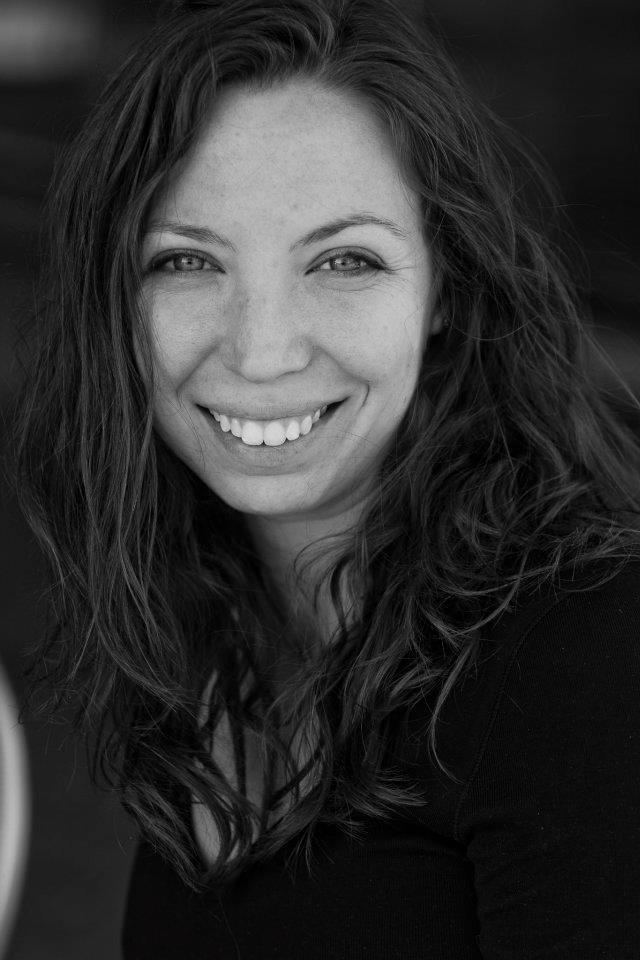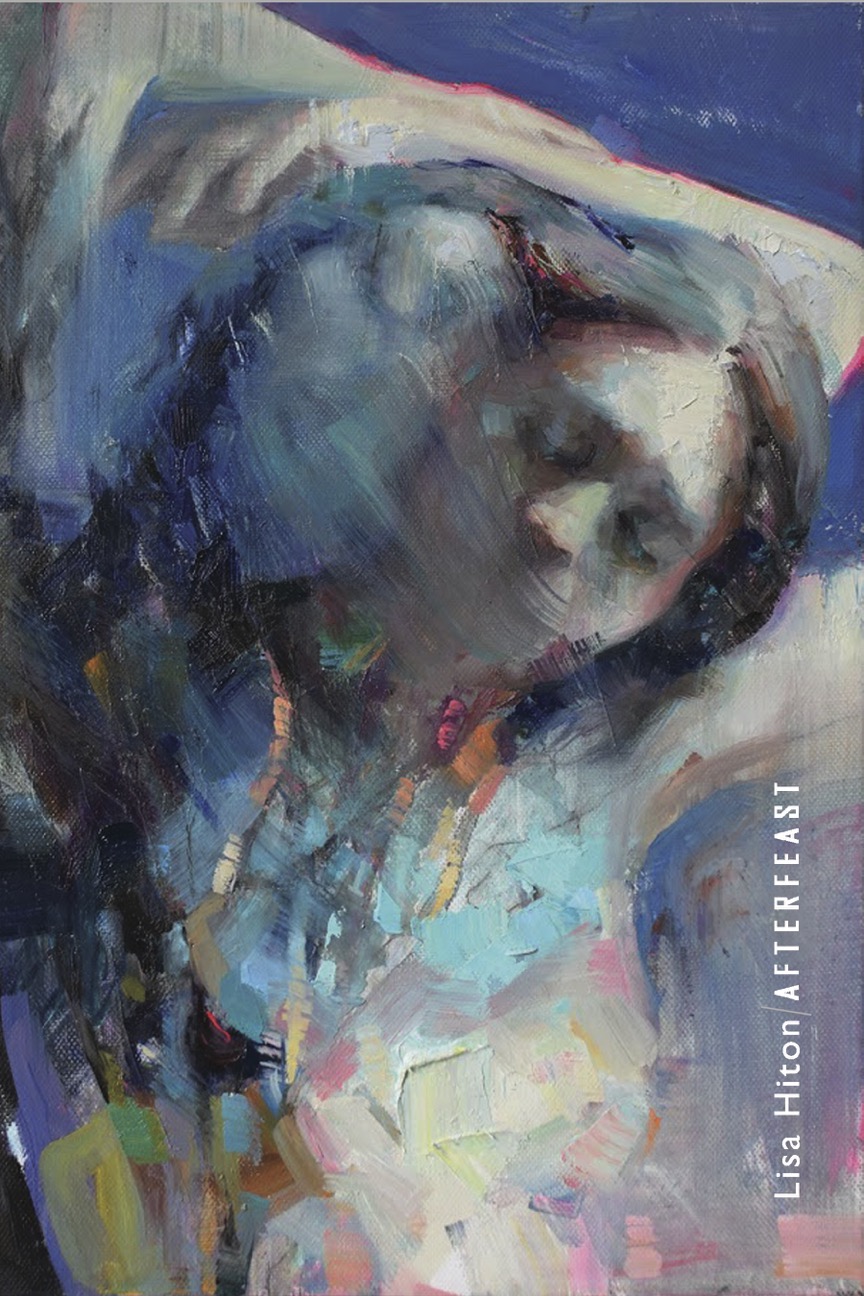I.You go to The Senator’s housebecause it might be complicatedwalking into the State House with your buddy’snine caliber in your back pocket.When he answers the door you try to talkbut he shoutsthat he’s not in the moodto argue with someone who knows nothingabout politics. Politics, you grunt.And then the gun comes out.You aren’t trembling. This surprisesyou, but it surprises him morebecause you seem to himlike his daughter—sweetand blue-eyedHe’s thinking:isn’t this the part where I press a buttonand the wires pull meup into the fly spaceand the curtain closes?But you know better, better than The Senator.The curtain is already closed.He asks you if you wantmoney. And you say:Isn’t this the part where you tell meyou’d rather have a dick in your face?The gun is three inches from his nose,pointing right between his eyes. II.The Senator stares down the barrel of your gunbut he doesn’t see the gun at all:summer, adolescence. He’s in the back of his dad’s carwith the first girl he’s going to fuck.He’s distracted, only for a momentby her hairand how its tangles smell like ginger,like his mother.The girl thinks that she’s going to kiss a boyand then leave. He’s surprisedwhen it hurts her. He’s not scaredwhen he gets out of the car and she doesn’t followbecause she’s dead in the backseat.It never dawns on him that you might shoot—The Senator never thinks he will get shot;only that he will get reelected.He blinks, finally. And you drop the gun.He has two choices now:he can call the cops, or he can rough you up.When he’s got you against the brick of his house III.you know it’s the part where you forgot to leaveyourself an out. Your eyesare neither opened nor closed.You know how this ends. (The gunwas fake, wasn’t it?)You are in the other placenow. You’ve been there oncebefore. It’s not the same as numbnesswhere the scene is happening, but it looks all fuzzy.It’s more like being an insect:everything is a deep darkand you have to feel your way around. IV.This is the part where you tell himyou’d rather have the gun waving in your face.You’ve said this once before,only this time it’s a dream. And in the dreamthe gun is made of soap.But in a murderous time,(and this, comrade, is real now)the stoop is not a stoop,and The Senator is not a senator.The brick wall is thereand your back is against it,it pulls at the cotton of your summer self.You were just inside. You were justkissing. You were only eighteen.No, it’s that you’re already eighteen.You choose a gun,but it was just a game.You don’t get to choose.There was no gun. V.Something is happeningwith The Senator on the stoopbut you’re still in the other place.You get to dwell there a little longerbefore the sun comes up.Your blindness is not like The Senator’sbecause darkness is not the sameas blindness:in the one case there’s a curtainkeeping out the light.The Senator stands in the doorwayknowing nothing of your murderous time,how it passes, again, in beats: handsthudding against your body.Your father is roaming the streets somewherelooking for someone to kill.Sometimes when you’re in the room backstageyou look for a door,one that will open to a bright light.Even in the theater of the mindyou know where everything is:trap door to happy ending, trap doorto irreverence, trap doorafter trap door, all the ways it might unfold.But you remember: the sting of knuckles grazing brickwhen you drag yourself from behind the building,hailing the cab, you rememberthe smell of clean hair.
The Senator
Feature Date
- December 11, 2021
Series
Selected By
Share This Poem
Print This Poem
“The Senator” from AFTERFEAST: by Lisa Hiton.
Published by Tupelo Press 2021.
Copyright © 2021 by Lisa Hiton.
All rights reserved.
Reproduced by Poetry Daily with permission.

Lisa Hiton is the author of Afterfeast, which was selected by Mary Jo Bang to win the Dorset Prize. She holds degrees from Boston University and Harvard University. Her work has appeared in Lambda Literary, The Common, and Kenyon Review, and has been honored with the AWP Kurt Brown Prize. She is Poetry Editor of The Adroit Journal. She is the Founder and Producer of Queer Poem-a-Day at the Deerfield Public Library.
“Lisa Hiton’s Afterfeast explores Mediterranean superstition, the spiritual complexities of Judaism, and the undersung erotics of lesbian intimacy with a daunting omniscience, moving from past to present, from real city to mythical terrain, from lyric speaker to shifting persona… What ‘happens’ and to whom it is happening is secondary to Hiton’s breathtaking irreality, a modernist decoupling of time and space that allows the reader to almost slip out of a poem into some other dimension only to be resurrected in a lake, Boston, a Japanese tree, a lover.”
—Megan Fernandes, Poetry Foundation
“These brilliant poems are covertly grounded in metaphysical questions, such as: Where is the line between one’s ever-evolving consciousness and the only slightly more static ‘material’ world? And the brain, is that behavior or matter? And love, what’s that? To explore these questions, vast categories and fluid distinctions are fractured and then woven back together to create an oracular, constructed self—a like-minded speaker, who, like us, has five senses as well as countless more that extend perception into other realms. This speaker lives in a dream world of her own making that is set, like a body inside its skin, in the real world that chance has granted her. She—American, Jewish, lesbian—lives inside history and dislocation, inside death and its sister, persistence (“rotgut of pine needles. / Bees do a deathhurdle over the edge, yet I do not transform”). In ‘Kavala,’ titled for the ancient Greek city that was once known as Neapolis (new city) the moon says: ‘I // tell you / what this silence stands for’. The voice of the timeless lyric moon is the poet’s voice. Her voice becomes the voice of Time talking to Space about what it is to be human. And yet, in the world of these poems, as in our world, we also have Formica, Pringles, melting butter and a matching yellow swimsuit. In other words, we have all the realities: the real, the surreal, the unreal, and the existential irreal. We need them all because any self, poetic construct or flesh-and-blood, inhabits all of these and stays busy trying to make sense of the ways in which they intersect.”
— from the Dorset Prize Judge’s Citation by Mary Jo Bang
Poetry Daily Depends on You
With your support, we make reading the best contemporary poetry a treasured daily experience. Consider a contribution today.




